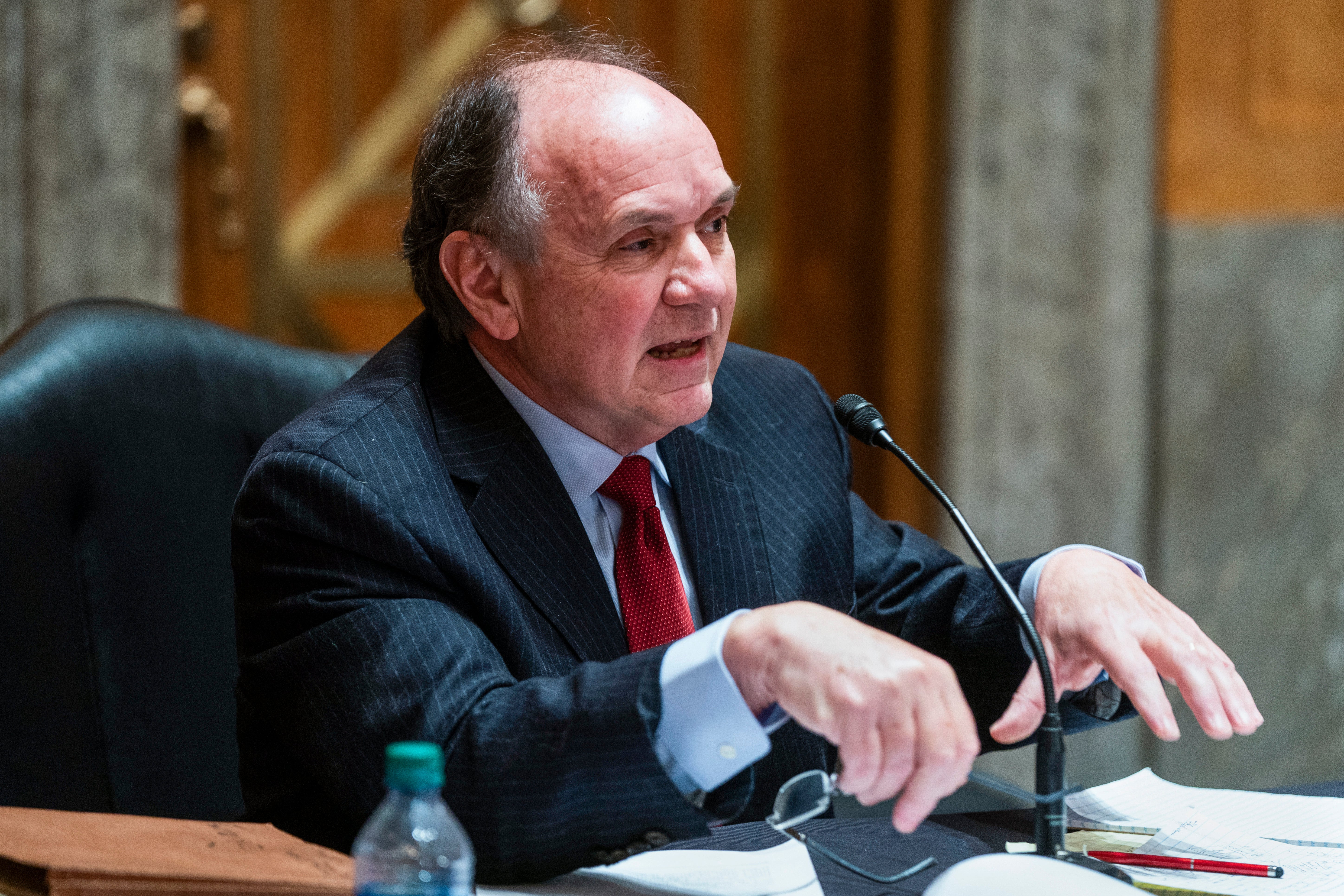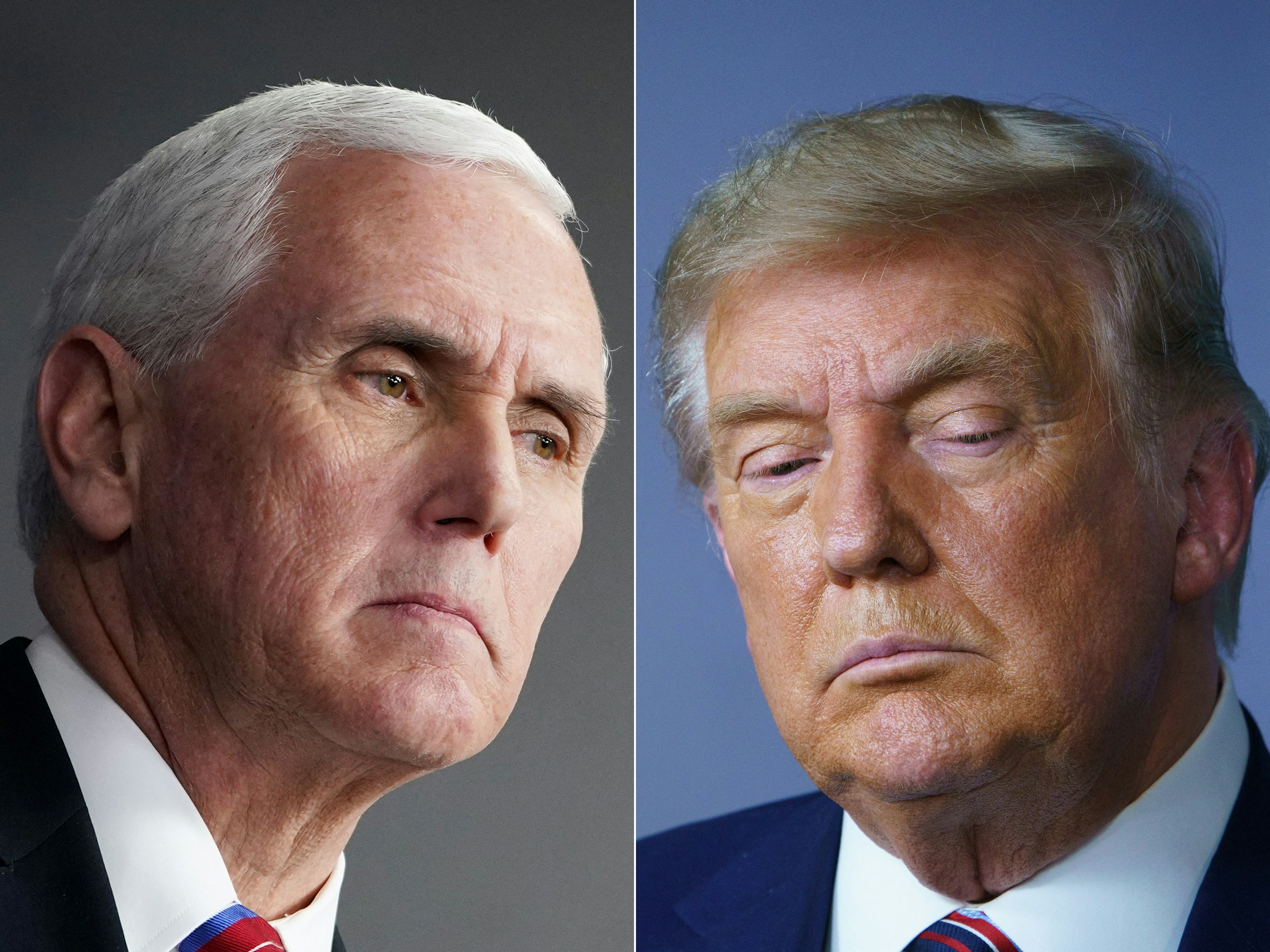Trump lawyers, aide hit with ten new felony charges in Wisconsin fake electors case
Each charge carries a possible maximum penalty of six years in prison and a $10,000 fine.

Your support helps us to tell the story
From reproductive rights to climate change to Big Tech, The Independent is on the ground when the story is developing. Whether it's investigating the financials of Elon Musk's pro-Trump PAC or producing our latest documentary, 'The A Word', which shines a light on the American women fighting for reproductive rights, we know how important it is to parse out the facts from the messaging.
At such a critical moment in US history, we need reporters on the ground. Your donation allows us to keep sending journalists to speak to both sides of the story.
The Independent is trusted by Americans across the entire political spectrum. And unlike many other quality news outlets, we choose not to lock Americans out of our reporting and analysis with paywalls. We believe quality journalism should be available to everyone, paid for by those who can afford it.
Your support makes all the difference.MADISON, Wis. — Wisconsin prosecutors filed 10 additional felony charges Tuesday against two attorneys and an aide to President-elect Donald Trump who allegedly advised Trump in 2020 to falsely claim he won the state’s election as part of a “fake elector” scheme.
Jim Troupis, who was Trump’s attorney in Wisconsin, Kenneth Chesebro, an attorney who advised the campaign, and Mike Roman, Trump’s director of Election Day operations in 2020, all initially faced a single felony forgery charge in in the state when they were filed in June.
But on Tuesday, just two days before all three are scheduled to appear for their initial court appearances, the Wisconsin Department of Justice filed 10 additional felony charges against each of the men.
The charges involve using forgery in an alleged attempt to defraud each of the 10 Republican electors who cast their ballots for Trump, attested to in paperwork submitted by the trio that year even though Trump lost the election in the state.
Each of the now 11 felony charges the three men face carries the same maximum penalty of six years in prison and a $10,000 fine.

Attorneys for each of the defendants did not immediately reply to emails seeking comment.
The state charges against the Trump attorneys and aide are the only ones in Wisconsin. None of the electors have been charged. The 10 Wisconsin electors, Chesebro and Troupis all settled a lawsuit that was brought against them in 2023.
There are also pending charges related to the fake electors scheme in state and federal courts in Arizona, Michigan, Nevada and Georgia. Federal prosecutors investigating Trump’s conduct related to the Jan. 6, 2021 Capitol riot in Washington, DC, said the fake electors scheme originated in Wisconsin.
Electors are people appointed to represent voters in presidential elections. The winner of the popular vote in each state determines which party’s electors are sent to the Electoral College, which meets in December after the election to certify the outcome. Two states, Maine and Nebraska, allow their electoral votes to be split between candidates.
The Wisconsin complaint details how Troupis, Chesebro and Roman created a document that falsely said Trump had won Wisconsin’s 10 Electoral College votes and then attempted to deliver them to then-Vice President Mike Pence before he was to certify Joe Biden’s presidential election victory.
In the amended complaint filed Tuesday, prosecutors said the majority of the 10 electors explained to investigators that they were told they were only needed to sign the alternate elector certificate indicating that Trump had won only to preserve his legal options if a court changed the outcome of the election in Wisconsin. A majority of the electors told investigators that they did not believe their signatures on the elector certificate would be submitted to Congress without a court ruling, the complaint stated.
Additionally, a majority of the electors said that they did not consent to having their signatures presented as if Trump had won without such a court ruling, the complaint said.
Troupis filed four motions to dismiss the charge against him ahead of Thursday’s hearing and before the amended complaint was filed. He argued in one that having Republican electors meet and cast their ballot was done to preserve their legal options in case the U.S. Supreme Court ruled in Trump’s favor in a lawsuit challenging the Wisconsin vote. No crime was committed by that action, therefore the complaint must be dismissed, Troupis contends.
The Wisconsin charges were brought by Attorney General Josh Kaul, a Democrat. They were filed in June, five months before Trump carried Wisconsin in November. Trump also won the state in 2016, but lost it in 2020.
The fake elector efforts were central to a 2023 federal racketeering indictment filed against Trump alleging he tried to overturn the results of the 2020 election. But special counsel Jack Smith moved to drop that case last month, acknowledging that Trump’s return to the White House will preclude attempts to federally prosecute him.
Trump was also indicted in Georgia along with 18 others accused of participating in a sprawling scheme to illegally overturn the 2020 presidential election there. Trump is trying to get that case dismissed, arguing that state courts won’t have jurisdiction over him when he returns to the White House next month.
Chesebro and Roman were among those indicted along with Trump in Georgia. Roman has pleaded not guilty to racketeering and conspiracy charges there. He has also pleaded not guilty to nine felony charges in Arizona related to the fake electors scheme in that state, including conspiracy, fraud and forgery.
Last year, Chesebro pleaded guilty to one felony charge of conspiracy to commit filing false documents after reaching a deal with Georgia prosecutors. He is now trying to invalidate the plea after the judge in September tossed out the charge to which he had pleaded guilty.
Chesebro was one of four people to plead guilty in the Georgia case in the months following the indictment.
Join our commenting forum
Join thought-provoking conversations, follow other Independent readers and see their replies
Comments